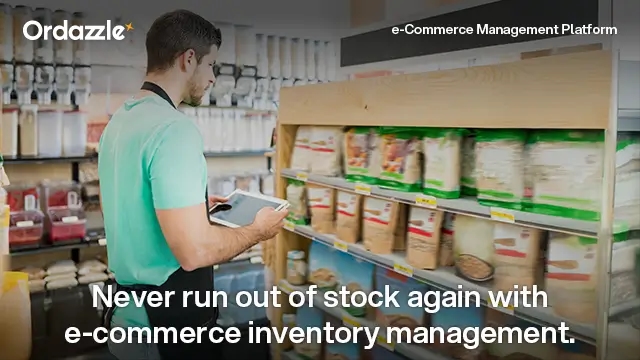E-commerce Master Data Management: Streamlining product catalogues and pricing updates

If there is one industry that has flourished since the pandemic, it is e-commerce. As countries the world over went into lockdown, e-commerce remained the only form of shopping that was available. We took to the internet in a big way, following which the e-commerce market registered exponential growth. Despite the global and domestic logistics challenges during the pandemic, brands recorded a sharp rise in order volumes. They also expanded horizontally into other product categories, while a variety of e-commerce channels emerged. With this, e-commerce master data management software has come into the spotlight.
Countries globally are gradually returning to normalcy. A large part of the workforce worldwide has returned to offices, travelling has resumed, and screen times have gone down, albeit marginally, vis-à-vis that during the pandemic. What does this mean for the new e-commerce brands that have built a presence only over the last two years?
It is more important now than ever to stand out and have an edge over your competitors. You need to have a smooth and seamless operational framework. An efficient product catalogue management software can be a game-changer for your e-commerce business.
How? Let’s find out!
What is e-commerce master data management?
Simply put — it is the organisation of the product catalogues for your e-commerce brand, which you will publish on your online store (website and mobile app) and marketplaces. It is a structured approach to optimise the management of bulk data.
If you want to increase the inflow of orders, there are two strategies. First, increase your product catalogue and expand into complementary categories. More variety will automatically increase the chances of conversion. Second, increase the visibility of your products by listing them on multiple platforms and marketplaces. This, too, will lead to higher sales and higher conversion.
Having a solid e-commerce master data management system is important for both strategies, especially the latter.
For the first strategy — higher product variety — the challenges will be around keeping the product descriptions updated and optimised. But for an omnichannel approach, you will need to track inventories and orders across different websites and apps. It is very easy to miss things and make mistakes.
How does a product catalogue management software work?
A product catalogue management software is essentially a repository of information. Think of it like a database that contains everything about all the products you sell.
Most e-commerce platforms like Shopify will offer you a basic version of a product catalogue management system. You’ll be able to add all your products in a pre-defined format. You can update your inventory and product descriptions inside that system.
But, if you want to adopt a truly multi-channel approach, you will require a more advanced e-commerce master data management software.
Just like the in-built product catalogue management software in e-commerce websites can manage the products listed on one particular website, the more advanced integrated platforms can handle the inventory and product catalogues across different websites, apps, and marketplaces. Some software can even automate the delivery of products when orders are placed.
You can even go one step further and add all the details of the manufacturers and vendors that you use into the same interface. Then, you’ll be able to control all the different entities in your e-commerce business in one place.
The main objective of an e-commerce product information management system, or master data management system, is to provide you with all the information pertaining to the products in one consolidated interface. Having such an overview is often the difference that helps an e-commerce brand succeed.
Why?
Let’s look at the advantages of a master data management system.
Why is data management important in e-commerce?
There are several benefits of an integrated multi-channel e-commerce product information management or master data management system. Below are some of the most important business benefits for any e-commerce brand or online seller.
It reduces order cycle time.
Order cycle time is the time taken to manufacture and pack an order and get it ready to ship. It refers to the time to dispatch — i.e., the time it takes for the warehouse to process the order.
The shorter the order cycle time, the higher the efficiency of your system. You’ll be able to handle more orders, your customers will be very happy, and you’ll be earning more money.
The competition in the e-commerce space is through the roof right now. Shorter order cycle time and faster order fulfilment can provide an edge in customer retention.
It enables automation in different stages of the cycle.
Automations are another tool to increase efficiency. Not only can you increase accuracy, but you can also delegate mundane and repetitive tasks to robotic assistants who will not curse you behind your back.
What more can we want?
A strong e-commerce master data management system enables you to get an overview of the different segments of your business in one interface. You get all the information in one place, and you can track and configure different automation modules using custom-defined rules.
For instance, you can set up automatic email alerts for your customers. You can set up automatic updates to product pages for specific dates to ensure they incorporate new features and/or upgrades to your products once they are available in stock. You can even integrate your logistics providers and automate the delivery of orders.
It improves customer experience.
A full-fledged catalogue management software provides analytical insights into which products are being viewed by specific customers. You can track user preferences based on past orders and offer AI-enabled customised recommendations. You can also set up chatbots and virtual assistants to offer a premium shopping experience to your customers.
If you want to streamline your e-commerce management processes and give your customers a better experience, an integrated Product Information Management solution like Ordazzle is the way to go. Talk to one of our experts today to learn more about how we can help you take your e-commerce management to the next level.


